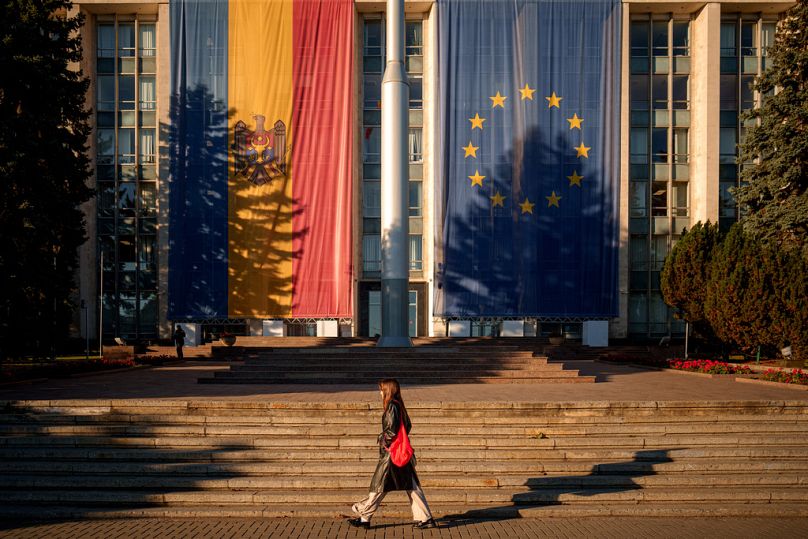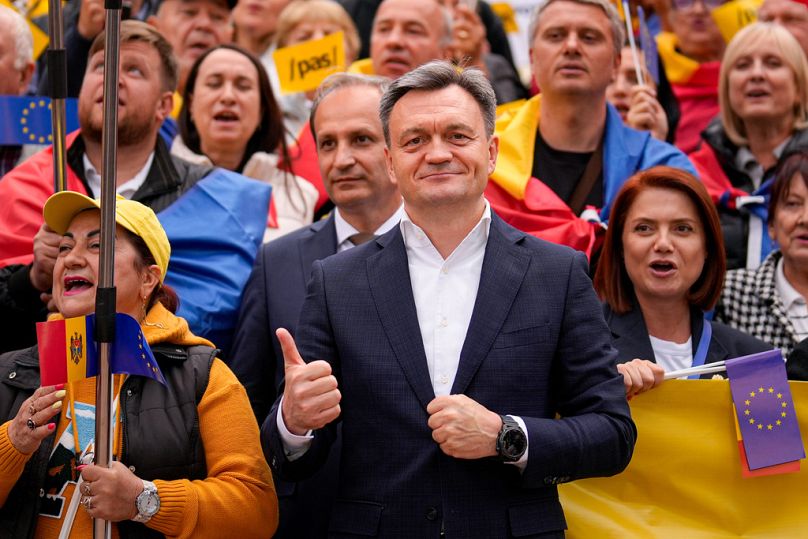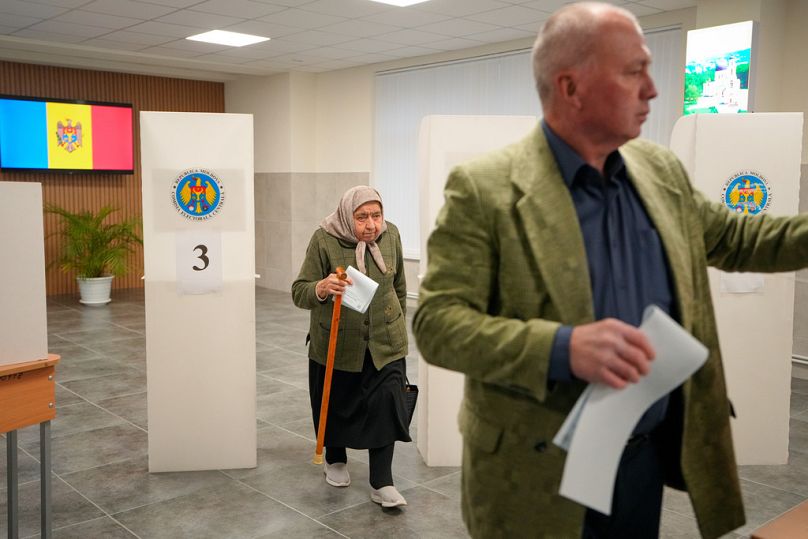Moldovans are heading to the polls to cast their ballots in what many consider a crucial parliamentary election with high stakes and a central question – will the country choose to integrate with the European Union or drift back into Moscow’s fold?
Sunday’s pivotal vote will elect a new 101-seat parliament, after which Moldova’s president nominates a prime minister, generally from the leading party or bloc, which can then try to form a new government. A proposed government then needs parliamentary approval.
The tense race pits the governing pro-Western Party of Action and Solidarity (PAS), which has held a strong parliamentary majority since 2021 but risks losing it, against several Russia-friendly opponents but no viable pro-European partners.
The lack of further pro-European candidates, and claims of heavy Russian interference leading up to the vote has created a wave of uncertainty over potential outcomes and the geopolitical course the country will take.

Moldova is landlocked between Ukraine and European Union member Romania. The country of about 2.5 million people has spent recent years on a westward path and gained candidate status to the EU in June 2022, just months after Russia launched a full-scale invasion of Ukraine.
Moldovan Prime Minister Dorin Recean warned that Russia is spending “hundreds of millions” of euros as part of an alleged “hybrid war” to try to seize power, which he described as “the final battle for our country’s future.”
“I call on every Moldovan at home and across Europe: We cannot change what Russia does, but we can change what we do as a people,” he said. “Turn worry into mobilisation and thoughtful action … Help stop their schemes.”
The alleged Russian strategies include a large-scale vote-buying operation, cyberattacks on critical government infrastructure, a plan to incite mass riots around the election, and a sprawling online disinformation campaign to diminish support for the pro-European ruling party and sway voters towards Moscow-friendly candidates.

Russia has repeatedly denied meddling in Moldova and dismissed the allegations last week as “anti-Russian” and “unsubstantiated.”
Authorities have warned that Moldova’s election day could be targeted by false bomb threats, cyberattacks, temporary power outages, and street violence by trained individuals.
Law enforcement officers have carried out hundreds of raids leading up to the vote, detaining many they suspect planned to cause disruptions to the country’s election.
Moldova’s large diaspora is also expected to play a decisive role in Sunday’s outcome.
In last year’s presidential run-off — which was also viewed as a choice between East and West — a record number of 327,000 voters cast ballots abroad, more than 82% of whom favoured pro-Western President Maia Sandu, ultimately securing her re-election.
A key opponent of PAS is the pro-Russian Patriotic Electoral Bloc, a group of political parties that wants “friendship with Russia,” and “permanent neutrality.”

Others include the populist Our Party, which wants “balanced foreign policy” between East and West, and the Alternativa Bloc, which claims to be pro-European, but critics say would seek closer ties to Moscow.
The country’s economic situation is also at the forefront of voters’ minds in this election cycle. Rampant inflation and a worsening cost living crisis, coupled with high poverty rates, may have diminished support for the incumbent ruling party, founded by Sandu in 2016.
Most local polls however project PAS to win the most votes, but these polls do not factor in the large diaspora. Polls have also reflected that about a third of voters remain undecided in the days leading up to the election.
In the 2021 parliamentary election, turnout was just over 48%. Experts and analysts predict that the higher the turnout, the more likely it is that PAS can secure a majority and form a government.







